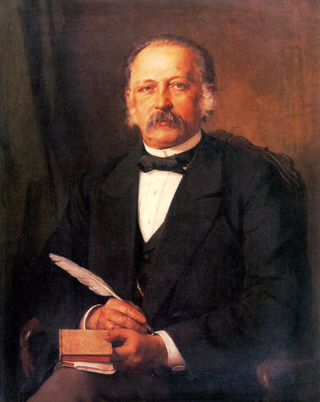
Theodor Fontane was a German novelist and poet, regarded by many as the most important 19th-century German-language realist author. He published the first of his novels, for which he is best known today, only at age 58 after a career as a journalist.

Christian Matthias Theodor Mommsen was a German classical scholar, historian, jurist, journalist, politician and archaeologist. He is widely regarded as one of the greatest classicists of the 19th century. His work regarding Roman history is still of fundamental importance for contemporary research. He received the 1902 Nobel Prize in Literature for being "the greatest living master of the art of historical writing, with special reference to his monumental work, A History of Rome", after having been nominated by 18 members of the Prussian Academy of Sciences. He was also a prominent German politician, as a member of the Prussian and German parliaments. His works on Roman law and on the law of obligations had a significant impact on the German civil code.

The German Democratic Party was a liberal political party in the Weimar Republic, considered centrist or centre-left. Along with the right-liberal German People's Party, it represented political liberalism in Germany between 1918 and 1933. It was formed in 1918 from the Progressive People's Party and the liberal wing of the National Liberal Party, both of which had been active in the German Empire.

Erftstadt is a town located about 20 km south-west of Cologne in the Rhein-Erft-Kreis, state of North Rhine-Westphalia, Germany. The name of the town derives from the river that flows through it, the Erft. The neighbouring towns are Brühl, Kerpen, Zülpich and Weilerswist.

Arthur Moritz Schoenflies, sometimes written as Schönflies, was a German mathematician, known for his contributions to the application of group theory to crystallography, and for work in topology.
Francis Wolff was a record company executive, photographer and record producer. Wolff's skills, as an executive and a photographer, were important contributions to the success of the Blue Note record label.

The Berliner Tageblatt or BT was a German language newspaper published in Berlin from 1872 to 1939. Along with the Frankfurter Zeitung, it became one of the most important liberal German newspapers of its time.

Hellmuth Karasek was a German journalist, literary critic, novelist, and the author of many books on literature and film. He was one of Germany's best-known feuilletonists.
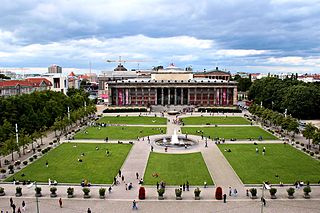
The Lustgarten is a park in Museum Island in central Berlin at the foreground of the Altes Museum. It is near the site of the former Berliner Stadtschloss of which it was originally a part. At various times in its history, the park has been used as a parade ground, a place for mass rallies and a public park.
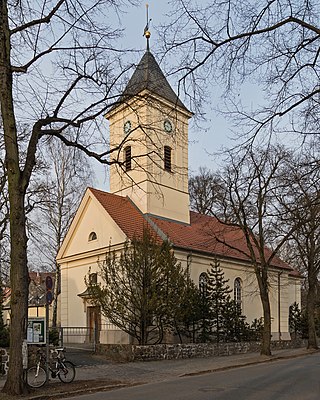
Hermsdorf is a district (Ortsteil) of Berlin located in the borough (Bezirk) of Reinickendorf.
Konrad Theodor Preuss was a German ethnologist. He was chairman of the Lithuanian Literary Society (1890–98).
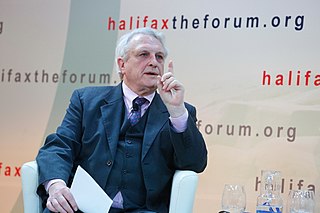
Josef Joffe is a former publisher-editor of Die Zeit, a weekly German newspaper. His second career has been in academia. Appointed Senior Fellow of Stanford's Freeman Spogli Institute for International Studies in 2007, he is also the Marc and Anita Abramowitz Fellow in International Relations at the Hoover Institution and a courtesy professor of political science at Stanford University. Since 1999, he has been an associate of the Olin Institute for Strategic Studies at Harvard University.
Johannes Gaitanides was a German writer and journalist.
Events in the year 1892 in Germany.
The Theodor Wolff Prize is a German journalism prize. It has been awarded annually since 1962 in five categories, equal prizes of €6,000, by the Federal Association of German Newspaper Publishers. In addition, at irregular intervals, journalists are awarded the Theodor Wolff Prize for their life's work.
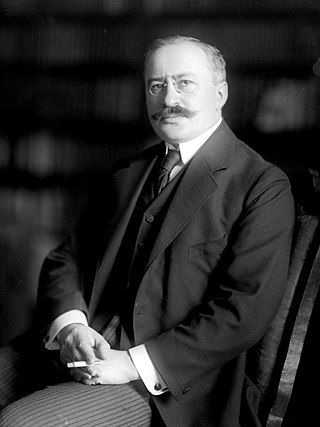
Theodor Wolff was a German writer who was influential as a journalist, critic and newspaper editor. He was born and died in Berlin. Between 1906 and 1933 he was the chief editor of the politically liberal newspaper Berliner Tageblatt.
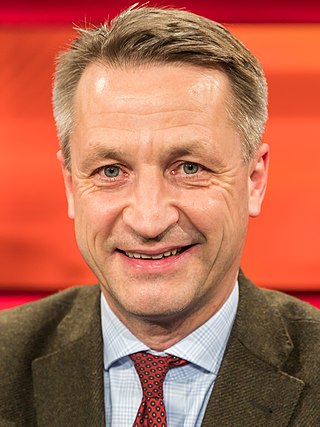
Nikolaus Blome is a German journalist.
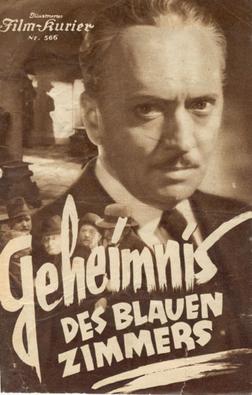
Geheimnis des blauen Zimmers is a 1932 German mystery film directed by Erich Engels and starring Theodor Loos, Else Elster and Hans Adalbert Schlettow.
Nina Grunenberg was a German author and prize-winning journalist. Beginning her career in West Germany at a time when political journalism was largely a male preserve, she wrote carefully researched reports on life in that country, and its political, social and economic topics, and focusing frequently on science or education She wrote about leaders in industry, unions and politics.















